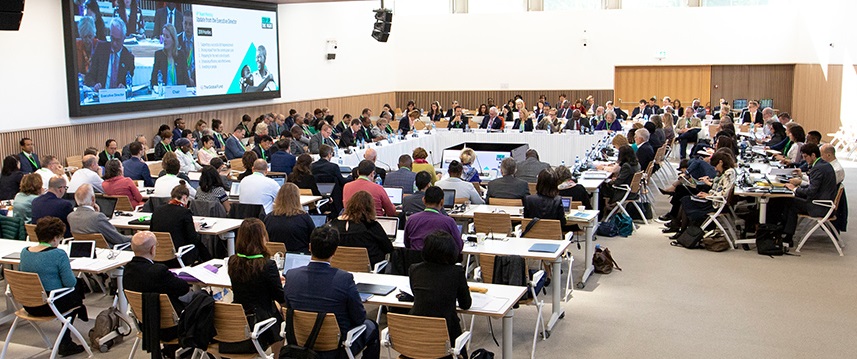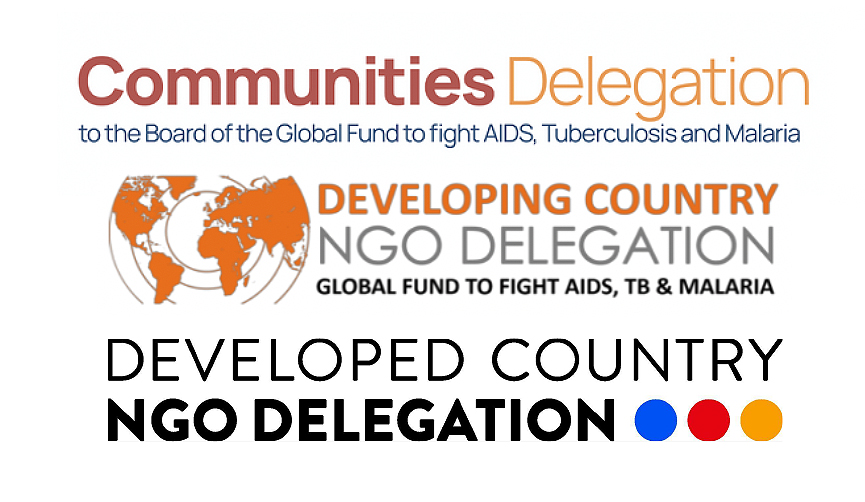Joint Statement of three delegations to the Board of the Global Fund
On the eve of our collective call to “Fight for What Counts,” the invasion of Ukraine has indeed catalysed the Global Fund partnership’s call to action.
At this week’s Preparatory Meeting for the Global Fund’s ambitious replenishment ask of 18 Billion US dollars, the Communities Delegation to the Board – speaking on behalf of the Civil Society and Communities Delegations – recognised that “Marginalised communities and populations are the first to suffer the consequences of any global pandemic and conflict. Around the world, they are our constant reminder that AIDS, TB and malaria do not go away in times of crisis.”
Ukrainian people and communities are suffering and will continue to suffer the graver consequences of the ongoing invasion and bombing of Ukrainian cities and the killing of Ukrainian citizens. The immensity of this destabilisation and the huge social, political, economic and personal cost of this conflict to populations and individuals across the region is yet to be seen. The highest costs are likely to be paid by the most marginalised – in lives, in loss of homes and livelihoods, in rising illness, in lack of access to health care, food security and education, in displacement and forced migration.
All these horrific costs are being paid by people and communities. At the same time, the life-saving services provided and progress achieved over many years in Ukraine with the support of the Global Fund are disrupted and devastated. We urge all in the GF partnership to recognise that those who stayed in Ukraine’s conflict zones and those who have left will need massive support to restore services, to provide for ongoing needs and to ensure continuity of and access to essential prevention, care and treatment.
As we actively place “communities at the center,” and in continuing global solidarity with our many friends and colleagues caught in the horror of war today, we urgently call on Global Fund to immediately and ambitiously provide support and as much protection as possible to affiliated staff in Ukraine (including CCM members and Principle Recipients), implementers (including Sub-Recipients and all other implementing partners), as well as people receiving needed services and support through Global Fund’s country and regional programs.
To that end we collectively call for the immediate deployment of Global Fund emergency funds to serve the needs of communities and civil society organisations that are arising as a result of the crisis in Ukraine.
Everyone can do their part to advocate, speak up, contribute, commit, pray and stand in solidarity with the people of Ukraine – our friends, our colleagues and our families. There are immediate needs for food and medical supplies, treatments, diagnostics, and more.
This is where the power of our Global Fund partnership can most meaningfully influence, intervene and save lives.
Our delegations deplore and condemn the actions of Russia against the sovereignty and basic human rights of the Ukrainian people. It is up to the strong solidarity and ambition of our partnership to mitigate the damage and destruction to people and programs caused by the actions of Russia.
With appropriate and immediate action, we can help to preserve the impact that the Global Fund has achieved in Ukraine – and across the broader region – over the past 20 years.
We are able, we are uniquely positioned and we are obligated to do so by our commitment to saving lives, protecting human rights and upholding humanity.
Communities Delegation to the Board of the Global Fund
Developing Country NGO Delegation to the Board of the Global Fund
Developed Country MGO Delegation to the Board of the Global Fund
25 February 2022




 The Developing Country NGO Delegation at the Global Fund published a statement with the 42nd Board Meeting highlights, including 8 important matters they pushed for at the meeting, with ways that civil society can move them forward. The statement is available
The Developing Country NGO Delegation at the Global Fund published a statement with the 42nd Board Meeting highlights, including 8 important matters they pushed for at the meeting, with ways that civil society can move them forward. The statement is available 

